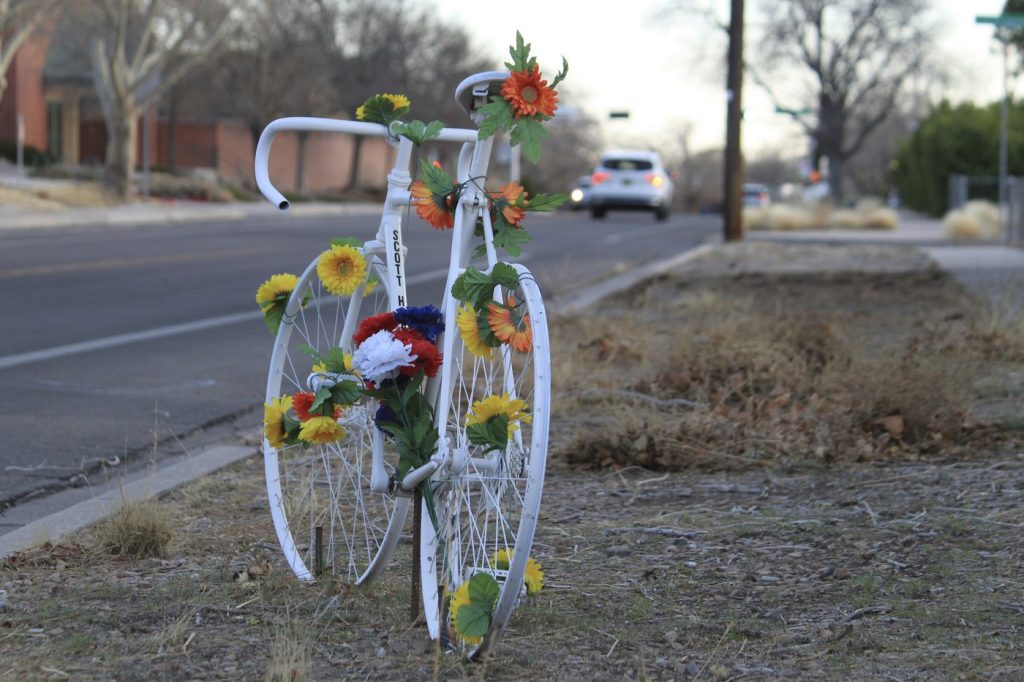In Albuquerque, New Mexico, a shocking incident involving a stolen car has highlighted the increasing concerns about juvenile crime. A 12-year-old boy was driving the vehicle, accompanied by an 11-year-old who brandished a handgun and a 15-year-old who recorded a video of what police have termed a deliberate hit-and-run. During the video, the driver inquires if he should "bump" a bicyclist, to which the 15-year-old encourages him to accelerate into the cyclist at a speed of 15 to 20 mph.
The car collided with Scott Dwight Habermehl, a father of two and a successful engineer, as he was biking to work. The incident occurred in the early hours of May, leading to the destruction of the windshield and the emergence of the car fleeing the scene. Initially, months went by without any arrests, but the situation changed dramatically in February when surveillance footage surfaced online. This prompted authorities to revisit the case, ultimately leading to the identification of the boys involved.
The trio, now ages 11, 13, and 16, were arrested last week in connection with Habermehl's death. Prosecutors have charged them with first-degree murder, conspiracy to commit murder, leaving the scene of an accident resulting in serious injury or death, and unlawful possession of a handgun by a person under 19. There is a push to try the 16-year-old as an adult due to the severity of the charges.
The spike in juvenile violence in Albuquerque, particularly in this case, has sent shockwaves throughout the community. Law enforcement is reportedly frustrated, and there are increasing calls for changes in a juvenile justice system that appears unequipped to manage crimes committed by children as young as 11. Authorities have suggested that many youths believe they can evade serious consequences for violent crimes.
Legal experts have pointed out that the juvenile justice system is struggling to adapt to cases involving very young offenders. Most teenage homicide suspects in Albuquerque have been aged 15 or older, making this situation particularly unprecedented. Under New Mexico state law, the 11-year-old cannot be detained in a juvenile facility and will instead remain in state custody with the welfare agency, while the 13- and 16-year-olds face confinement in juvenile detention facilities.
John Day, an attorney based in Santa Fe, remarked that the juvenile justice system was originally created to rehabilitate children rather than subject them to severe legal repercussions. He expressed concern that the legal framework is outdated and not suitable for addressing the complexities of violent behaviors exhibited by very young children today.
The absence of a minimum age for prosecution in New Mexico, as opposed to other states where ages are specified, complicates matters further. Currently, the law permits certain violent crimes to be tried in adult court if committed by teenagers aged 14 and older, solely in cases of first-degree murder. District Attorney Sam Bregman has called this legal framework archaic and pushed for legislative changes to broaden the circumstances under which juveniles can be charged as adults.
Recent calls from the Democratic Governor Michelle Lujan Grisham highlight the need for reform. She expressed disappointment over the legislature's failure to enact new legislation addressing issues of juvenile justice amidst a broader crime crisis, suggesting that lawmakers might have to convene for a special session to address these urgent concerns.
Historically, juvenile courts were established to allow for the rehabilitation of young offenders rather than treating them as adults from the start. The split between how juveniles and adults are treated reflects a recognition that children engage in crime differently, often lacking the cognitive ability to fully understand the consequences of their actions.
The 11-year-old's background remains unclear, with the New Mexico Children, Youth, and Families Department withholding comments, and he is not currently enrolled in any educational institution. Advocates for juvenile justice note that, while cases of this nature are rare, they underscore significant systemic issues regarding the treatment of youths within the justice system.
Experts continuously stress the importance of considering the developmental stages of adolescents and how their different cognitive levels affect their ability to make rational decisions. This complexity raises difficult questions about responsibility and accountability for children who engage in criminal behavior, particularly in severe incidents like the tragic hit-and-run that claimed the life of Scott Dwight Habermehl.










